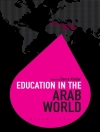The term ‘Inclusive Communities’ has increasingly featured in recent years, at policy, practice and theoretical levels, drawing from different disciplinary standpoints. Much of this has been spurred by efforts at understanding the exclusions confronted by certain populations, to develop the notion of and mechanisms by which communities can include those who are marginalised and/or oppressed, and in some contexts to ‘bring back’ community as something real or imagined. In spite of this, this deceptive term remains shrouded in epistemological darkness, conveniently endorsed but often little theorised and less understood. This text provides an exciting introductory textbook, drawing academics, policy makers and activists from various fields to theorise, create new and innovative conceptual platforms and develop further the hybrid idea of inclusive communities.
表中的内容
Contributors; Introduction; Chapter 1: Understanding Communities; Chapter 2: Community Development’s Radical Agenda: Social Justice and Environmental Sustainability; Chapter 3: Spaces for Inclusive Communities: Reflections on Contemporary Society; Chapter 4: People Like Us: Queering Inclusion, Rethinking Community; Chapter 5: Disability, Communities of Poverty and the Global South: Debating through Social Capital; Chapter 6: Negotiating Stigmatized Identities and Overcoming Barriers to Inclusion in the Transition to Adulthood; Chapter 7: Latin American Women and Inclusion in Public and Private Communities; Chapter 8: Economics, Game Theory and Disability Studies: Towards a Fertile Dialogue; Chapter 9: Female Asylum Seekers Living in Malta: Approaches to Fostering ‘Inclusive Communities’; Chapter 10: The Value of Mutual Support through Client Communities in the Design of Psychiatric Treatment and Rehabilitation Programs; Chapter 11: Beyond Networked Individualism and Trivial Pursuit:Putting Disruptive Technologies to Good Use; Chapter 12: Please, Just Call Us Parents: Engaging with Inclusive Approaches to Researching Marginalised Communities; Chapter 13: New Frontiers in Research: Using Visual Methods with Marginalised Communities; Chapter 14: Decolonizing Methodology: Disabled Children as Research Managers and Participant Ethnographers.












